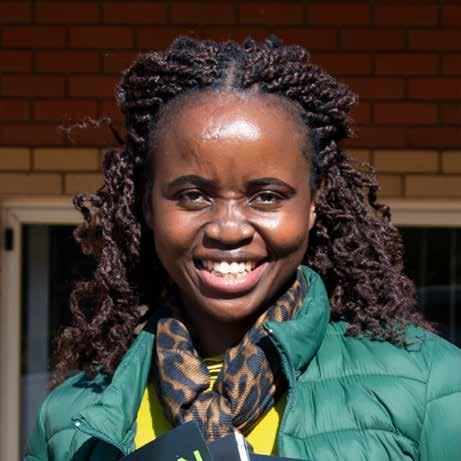SPACE AGENCIES
TOP 10 SPACE AGENCIES • •
Currently, African space programs focus primarily on improving the socio-economic and environmental benefits of space applications. Observing the sun and its activities; the space agencies provide reasoning to pictures that we cannot read but our scientists can.
H
umans have been venturing into space since the 1950s when the Union of Soviet Socialist Republics (USSR) launched Sputnik – the first artificial satellite to orbit Earth. According to War on the rocks; over the past decade 11 African countries (Algeria, Angola, Egypt, Ethiopia, Ghana, Kenya, Morocco, Nigeria, Rwanda, South Africa, and Sudan) have launched 38 unilateral and three multilateral satellites into orbit. The first African satellite “Sunsat-1” was launched to space by South Africa in 1999. To date: Investigations surrounding such questions have advanced from telescopes to satellites and space rovers with recent spacecraft. We have also watched humans set foot on the moon, land rovers on Mars, and also showed us the life beyond but scientists realised that studying that life and sending signals back to earth would take years thus the establishment of space agencies (power-house of our information signals) made things easier, which brings us to the core of this feature – finding out which are leading Space Agencies in Africa. They are: 1/ S O U T H A F R I CA ( A S PAC E W E AT H E R R E G I O N A L WA R N I N G C E N T R E F O R A F R I CA ) SANSA (South African National Space Agency) is South Africa’s government space agency that is responsible for the development and promotion of aeronautics and aerospace research. As of today, it is the only space program in Sub-Saharan Africa with an astronaut program and it was established on 9 December 2010 by the National Space Agency. SANSA uses satellite and other data acquisition to contribute to socio-economic development, environmental conservation, and natural resource management. Besides housing a state-of-the-art facility in Hartebeesthoek, it also operates a 24-hour regional space weather centre in Hermanus. 2/ N I G E R I A ( H A S LA U N C H E D F I V E S AT E L L I T E S ) The National Space Research and Development Agency (NASRDA), a research institution that is under the supervision of the Federal Ministry of Science and Technology of Nigeria was established on 5 May 1999. With the main objective to promote and support the 36
African Science Stars Issue 2 | www.assap.co.za
use of space technology within and outside Nigeria. The agency has the highest number of employees (approximately 3 500) in the continent and has been operating for 22 years. Nigeria, Africa, and the entire world are to be benefited from the centre’s foundational research, studies and development within Space Science. 3/ E G Y PT ( H O S T CO U N T RY F O R T H E H E A D Q U A RT E R S O F S PAC E AG E N C I E S ) Egyptian Space Agency (EgSA) is home to a multi-million dollar space observatory and research centre. It has limited experience in the field of satellites as it dates back to 1998. The Egyptian Space Agency owns six satellites, some of which are out of service, and others are still operating efficiently. It is the first awardee of the United Nations Office for Outer Space Affairs (UNOOSA)’s Access to space. Egypt’s first earth remote sensing satellite was EgyptSat 1 or Misrsat-1. 4/ A N G O LA The National Space Program Management Office (GGPEN) is an Angolan government space agency that was established in 2003. GGPEN is responsible for conducting technical studies and promoting space exploration. In addition to ensuring human competencies, it creates national technology within the space domain. 5/A LG E R I A ( T H E A LG E R I A N S PAC E AG E N CY ) The Algerian Space Agency (ASAL) derived from Arabic was established in 2002. Algerian Space Agency is responsible for the country's space program, undertaking five satellite missions in communication, earth observation and research. Algeria has successfully launched into orbit two satellites. It participates effectively in promoting space activities in Africa within a project called ARMC (Africain Resource Management satellite Constellation), a project that was initiated by Algeria, Kenya and South Africa for the management of African resources and the environment. 6/ E T H I O P I A Ethiopian Space Science Society (ESSS) was established in 2004, with 47 founding members as a citizen’s association. Ethiopia was

















